Indigenous Governance Database
IGD Database Search
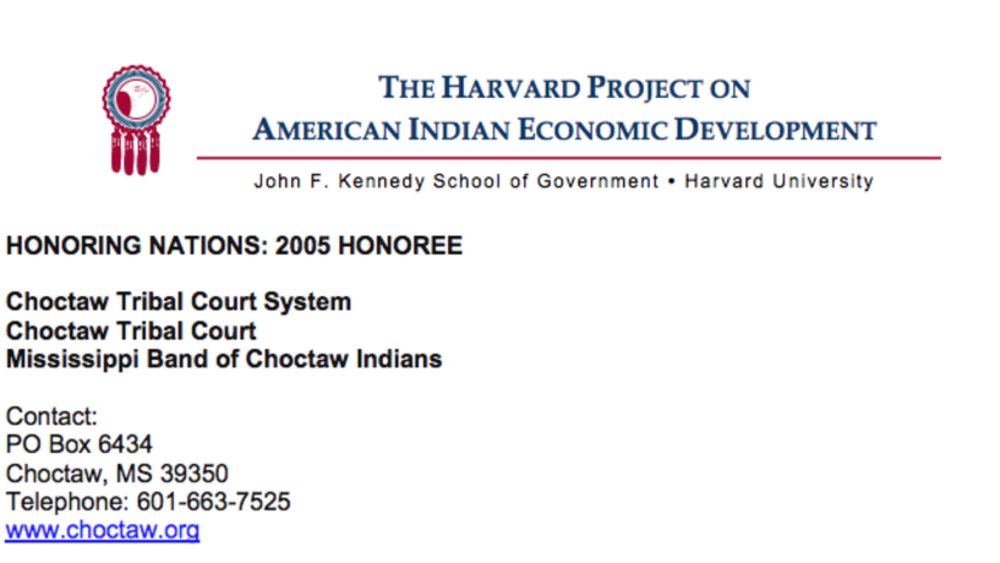
Choctaw Tribal Court System
Self-determination is the guiding principle behind all of the government initiatives undertaken by the Mississippi Band of Choctaw Indians. This nation has created a vibrant economy while investing resources into the preservation of Choctaw language and culture. At the heart of its success is its…
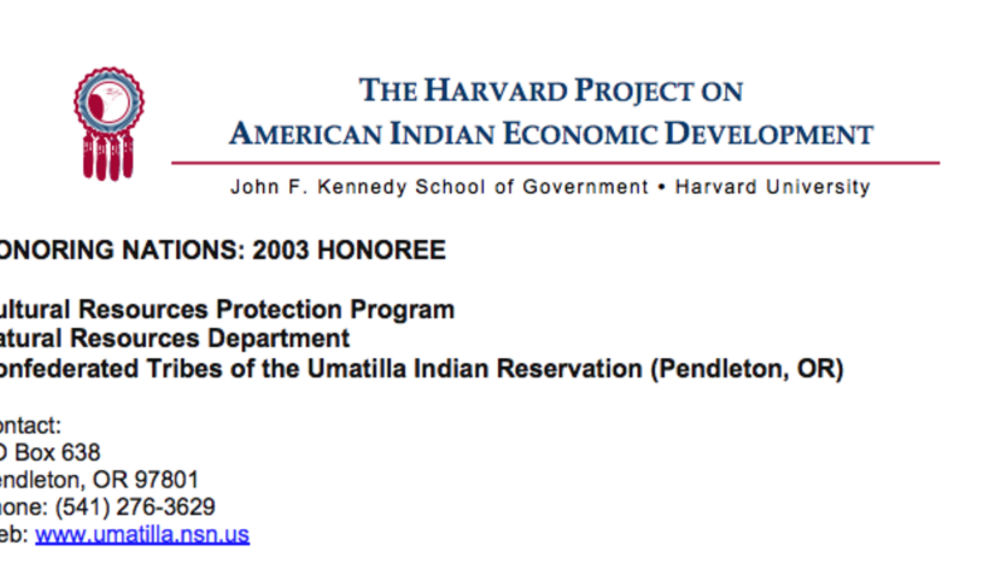
Umatilla Cultural Resources Protection Program
Frustrated by how tribal cultural resources were managed on tribal, federal, state, and private lands, the Tribes developed their own cultural resources protection program. The 15-year-old program is a leader in educating non-Indian agencies about pertinent laws and treaties, strengthening cultural…
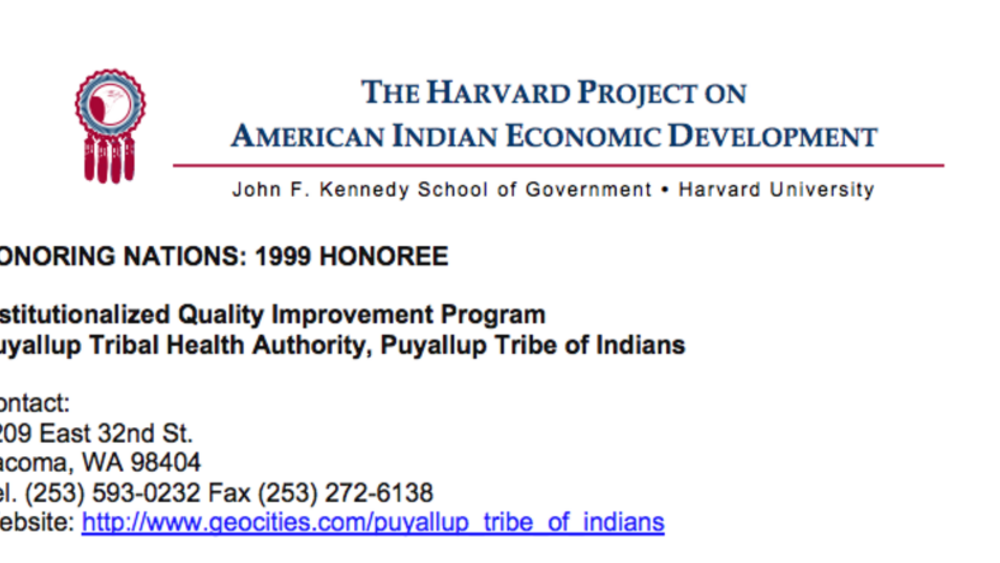
Puyallup's Institutionalized Quality Improvement Program
Following a major tribally-initiated restructuring in the early 1980s that created a quality improvement committee and a flatter organizational structure, the PTHA has increased patient access for urgent care visits, reduced "no show" rates, created clinical objectives, increased dental treatments…
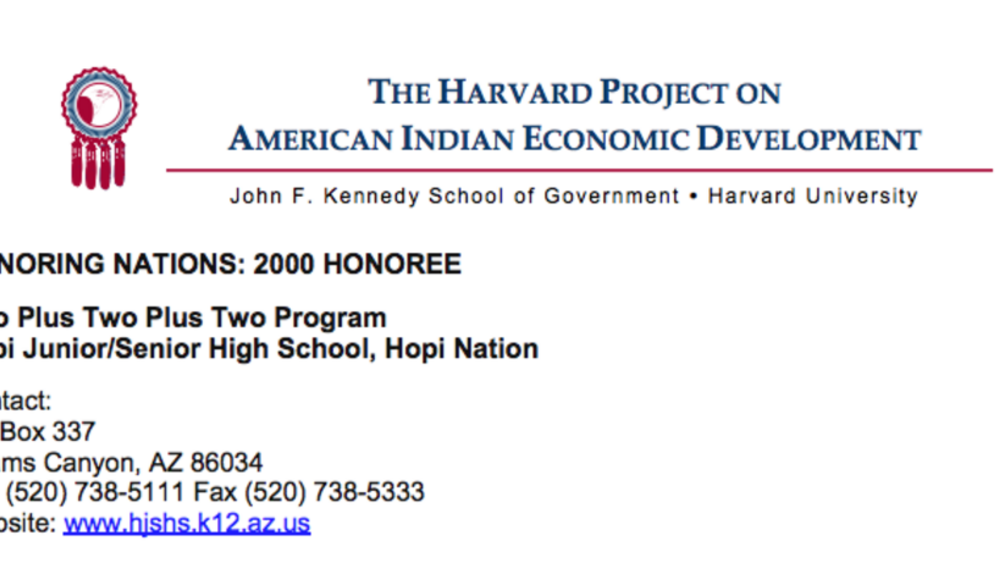
Hopi Jr./Sr. High: Two Plus Two Plus Two
Developed in 1997, the Two Plus Two Plus Two college transition program is a partnership between Hopi Junior/Senior High School, Northland Pioneer College, and Northern Arizona University. The program recruits junior and senior high school students to enroll in classes (including distance learning…
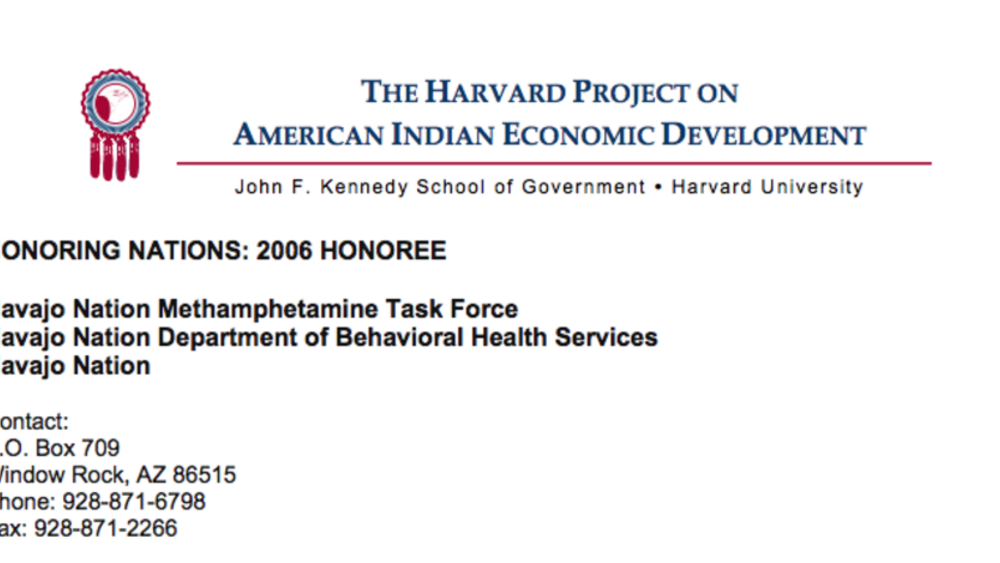
Navajo Methamphetamine Task Force
Taking a proactive stance on policy issues, options, and recommendations in the areas of prevention, treatment, and/or enforcement, the Methamphetamine Task Forces actively combat a tidal wave of destruction within their communities. Drawing upon education, community involvement, cultural…
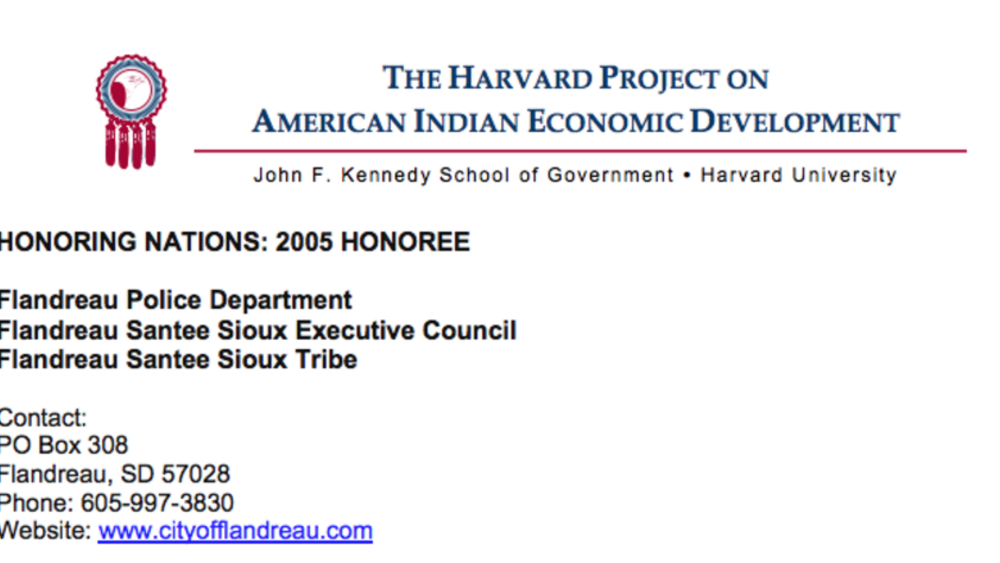
Flandreau Police Department
The Flandreau Santee Sioux Tribe’s lands are situated within Moody County and the City of Flandreau, South Dakota. This location presents the Nation with a particular challenge: How do you provide adequate and culturally sensitive public safety and law enforcement for your citizens in mixed…
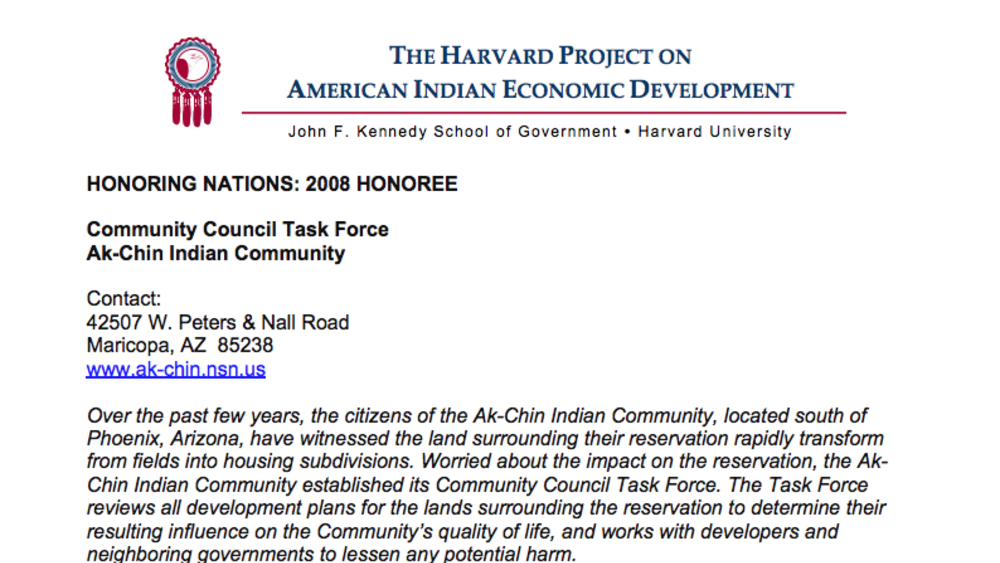
Ak-Chin Community Council Task Force
Over the past few years, the citizens of the Ak-Chin Indian Community, located south of Phoenix, Arizona, have witnessed the land surrounding their reservation rapidly transform from fields into housing subdivisions. Worried about the impact on the reservation, the Ak-Chin Indian Community…
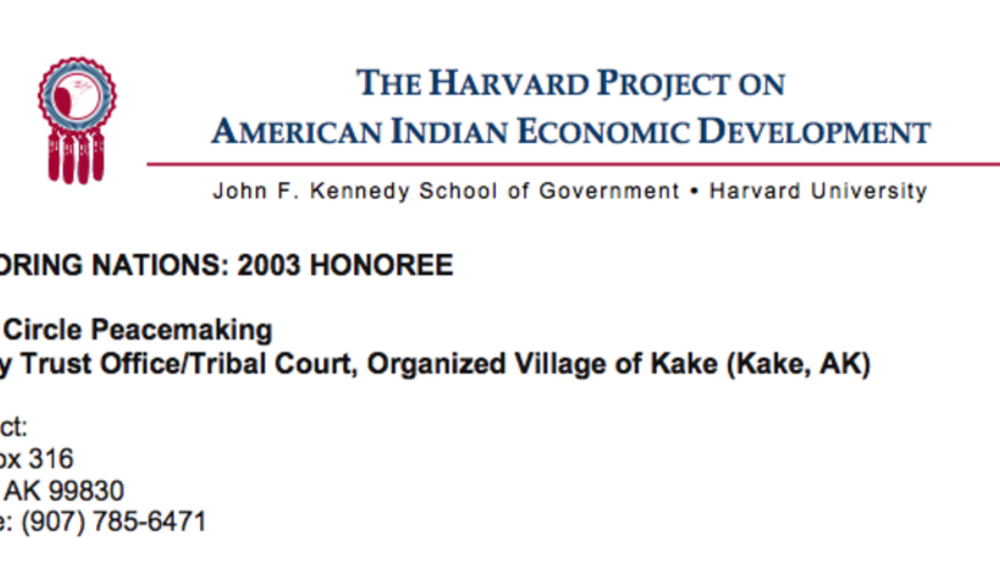
Kake Circle Peacemaking
Restoring its traditional method of dispute resolution, the Organized Village of Kake adopted Circle Peacemaking as its tribal court in 1999. Circle Peacemaking brings together victims, wrongdoers, families, religious leaders, and social service providers in a forum that restores relationships and…
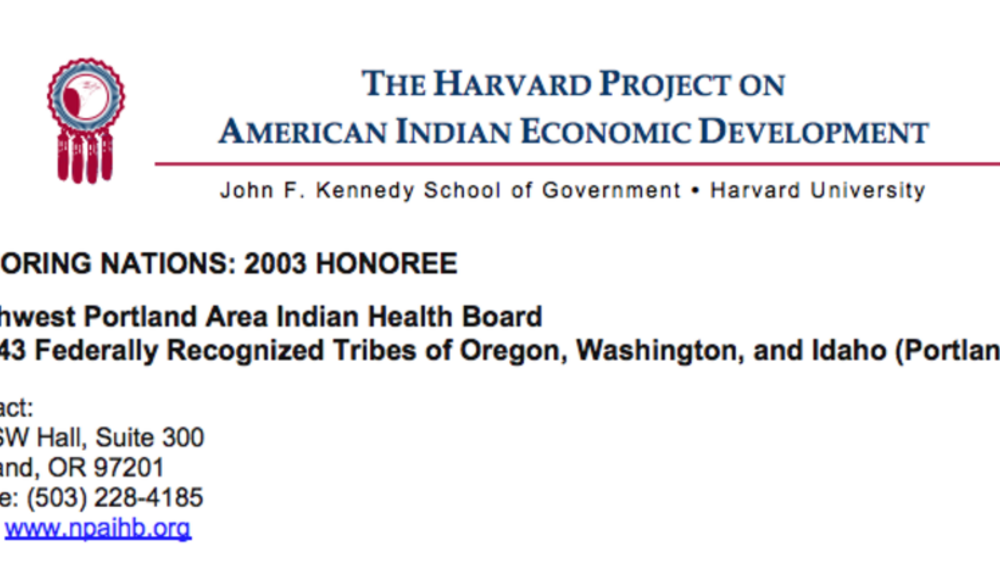
Northwest Portland Area Indian Health Board
Serving tribes in Oregon, Washington, and Idaho, the Northwest Portland Area Indian Health Board (NPAIHB) was created in 1972 to increase tribes’ ability to exercise control over the design and development of tribal health care delivery systems. Governed by tribal government delegates, NPAIHB…
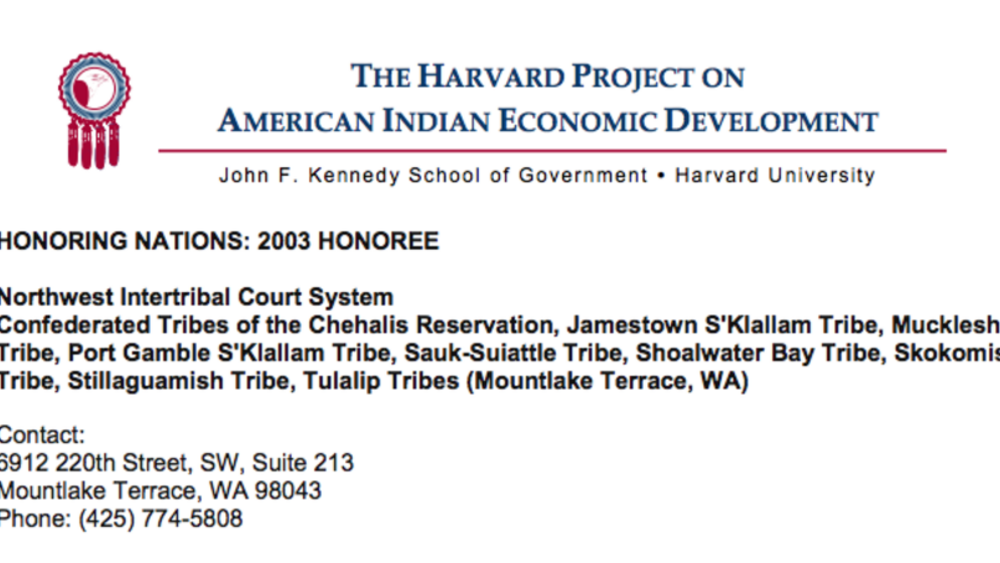
Northwest Intertribal Court System
The Northwest Intertribal Court System (NICS) assists tribes in developing tribal courts that provide fair, equitable, and uniform justice for all who fall within their jurisdiction. Owned by a consortium of tribes in Washington State, NICS recognizes the sovereignty, individual character, and…
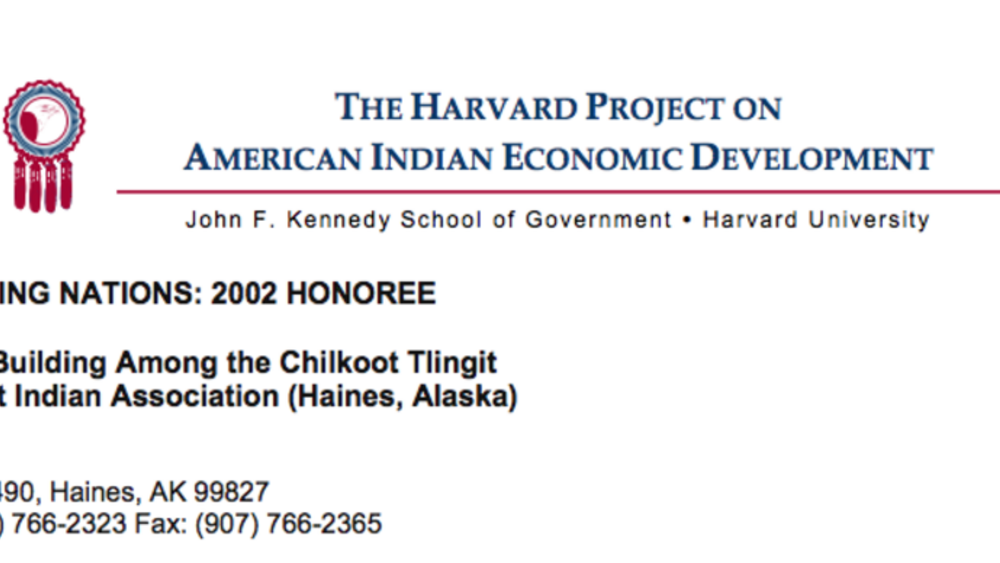
Chilkoot Tlingit "Nation Building"
Excluded by the Alaska Native Claims Settlement Act, the Chilkoot Tlingit are engaged in a process of nation-building. The process began in 1990 with the revival of their dormant tribal government, the Chilkoot Indian Association (CIA). From this institutional foundation, the 480-member CIA…
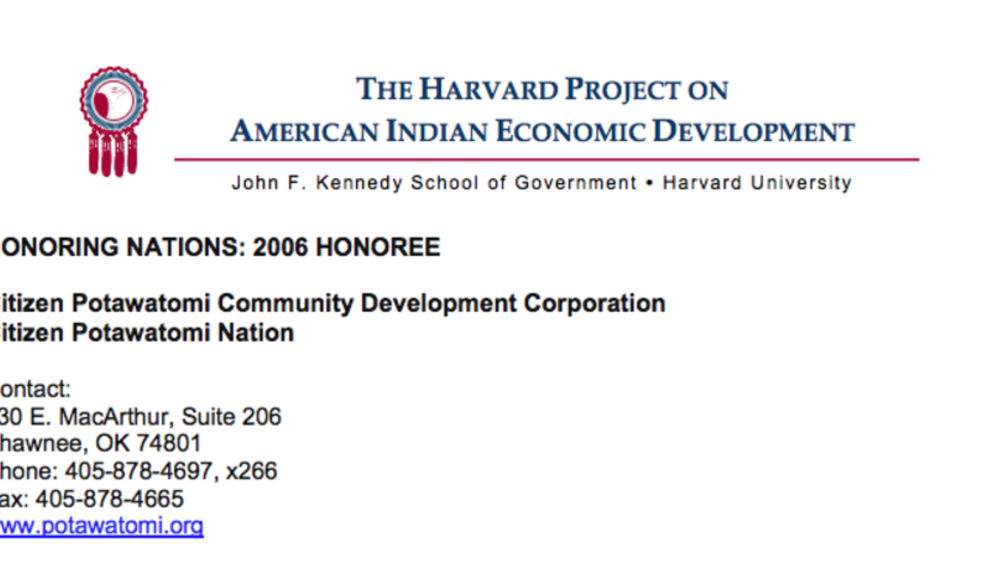
Citizen Potawatomi Community Development Corporation
Viewed as a one-stop shop for lending services, the Citizen Potawatomi Community Development Corporation provides holistic community development through business and employee loans, business development trainings, and financial literacy education. Demonstrating that the connection between…
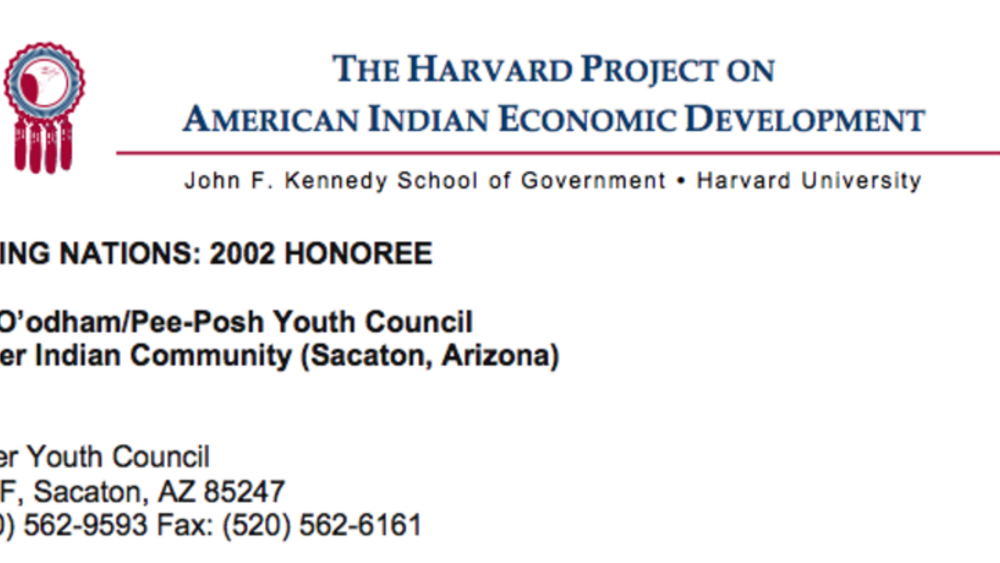
Akimel O'odham/Pee-Posh Youth Council
Recognizing that their youth possess critical insight on a full range of governing issues, tribal leaders chartered the Akimel O’odham/Pee-Posh Youth Council in 1988 to give youth a formal voice within the tribal government. The Council is comprised of 20 youth between the ages of 14-21, who are…
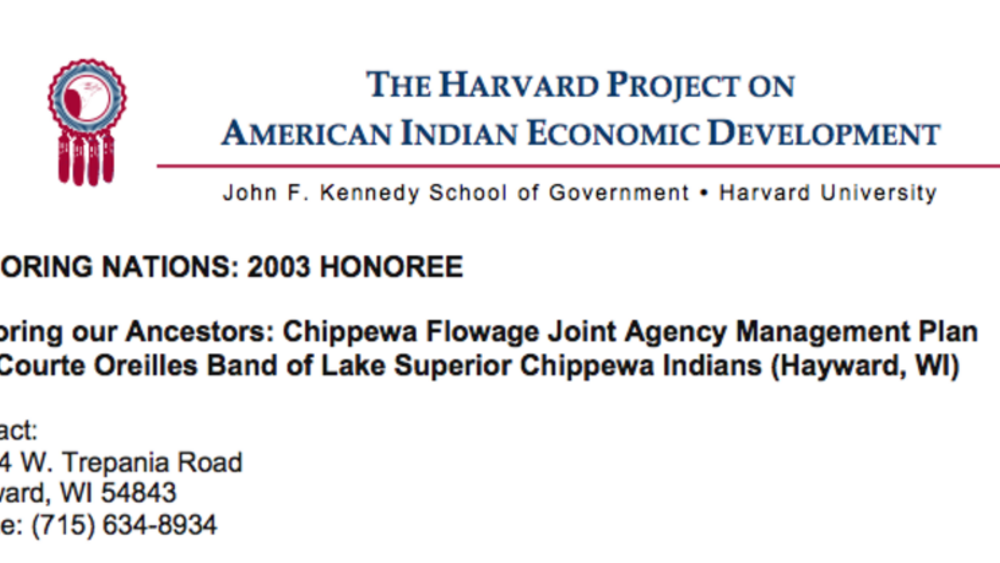
The Chippewa Flowage Joint Agency Management Plan
The Joint Agency Management Plan brings together three governments — the Lac Courte Oreilles Band, the State of Wisconsin, and the US Department of Agriculture Forest Service — to co-manage the Chippewa Flowage, a 15,300-acre reservoir created in 1923 that inundated a tribal village. Taking into…
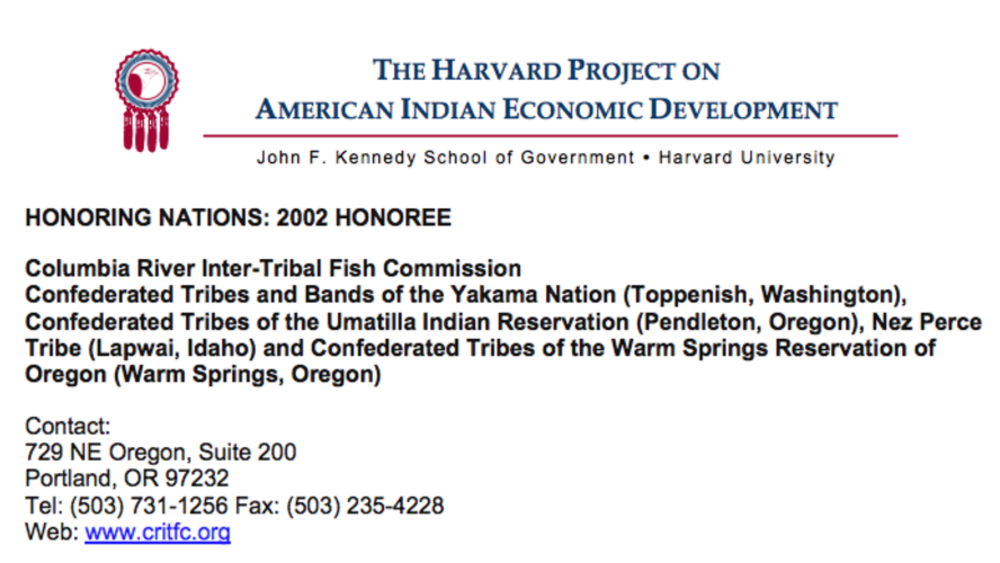
Columbia River Inter-Tribal Fish Commission
Charged with the overall management of its member tribes’ fisheries resources and advocating for the protection of treaty rights, the Columbia River Inter-Tribal Fish Commission’s (CRITFC) programs include fisheries enforcement, policy development and litigation support, fish marketing, and…
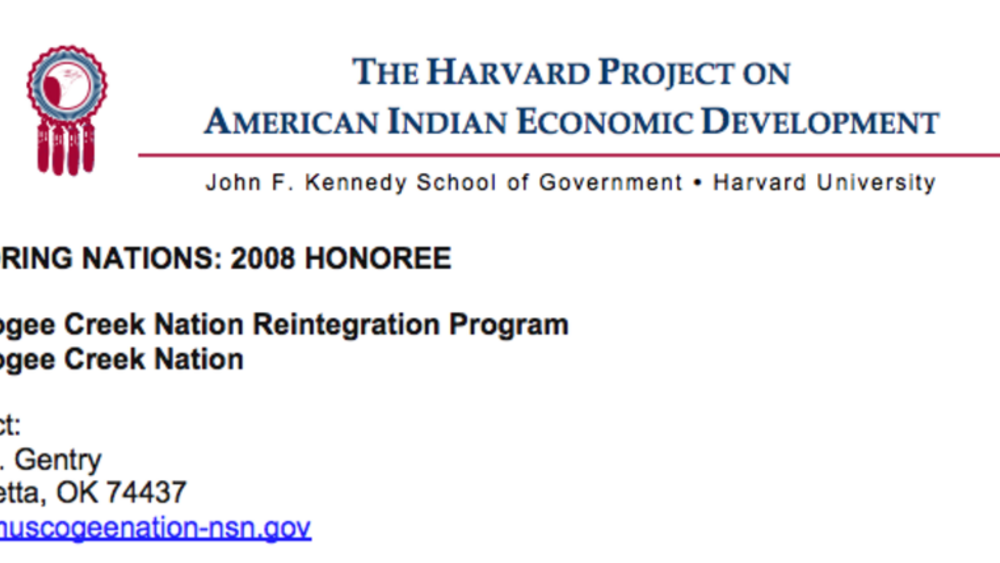
Muscogee Creek Nation Reintegration Program
Although the state of Oklahoma has one of the largest prison systems in the US, it provides released prisoners with little post-incarceration support. Many struggle to find their way on the "outside" and are eventually re-incarcerated. In the early 2000s, the Muscogee Creek Nation set out to tackle…
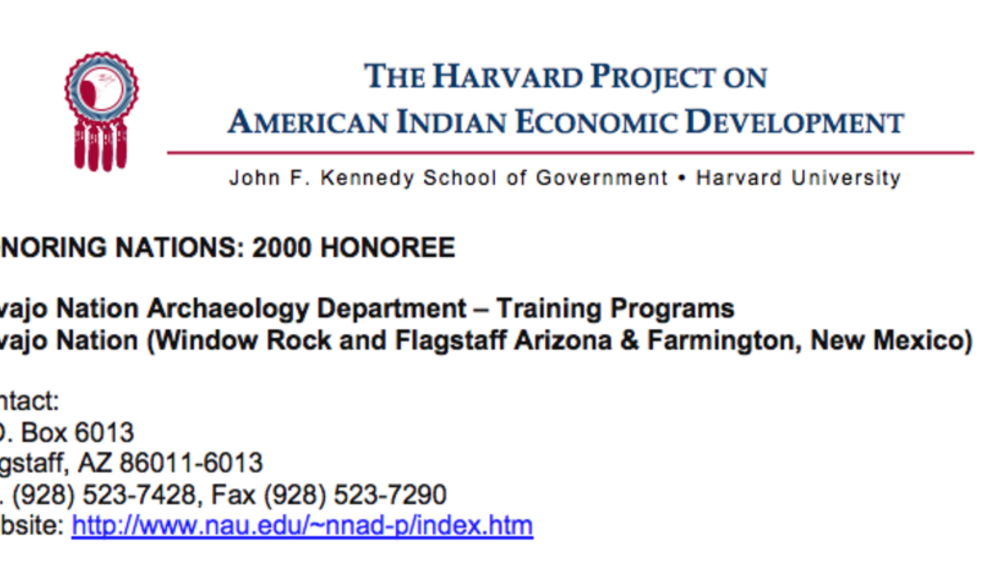
Navajo Nation Archaeology Department Training Programs
The Navajo Nation Archaeology Department was created in 1977 to facilitate historic preservation on Navajo Nation lands as mandated by both US and tribal government legislation. In 1988 and again in 1993, the Department expanded to include training programs, undertaken in partnership with Northern…
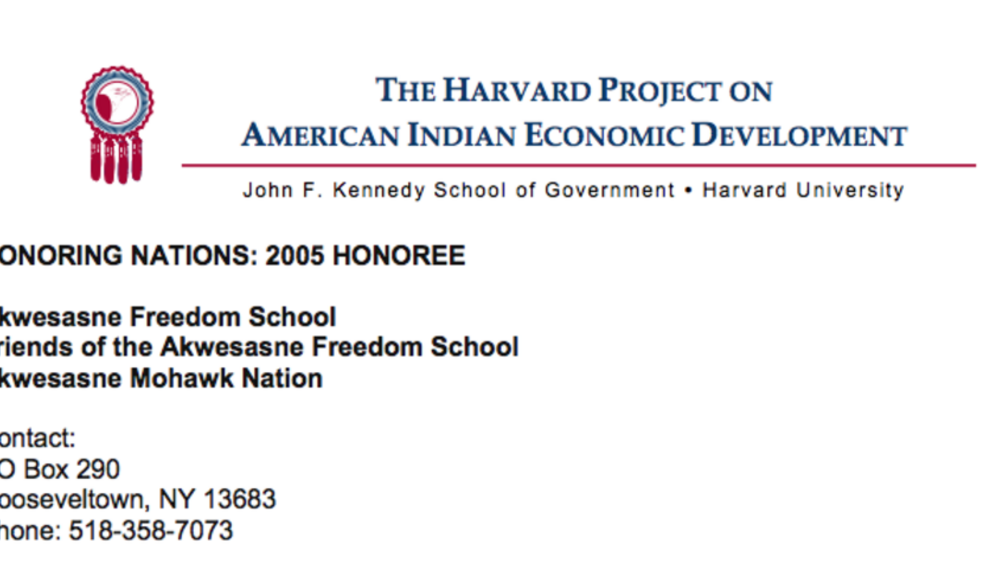
Akwesasne Freedom School
In 1979, the Akwesasne Freedom School took form out of the Mohawk struggle for self-determination and self-government. It is characterized by a deep commitment to the maintenance of Mohawk identity. Students in this pre-kindergarten through 8th-grade language immersion school begin and end each…
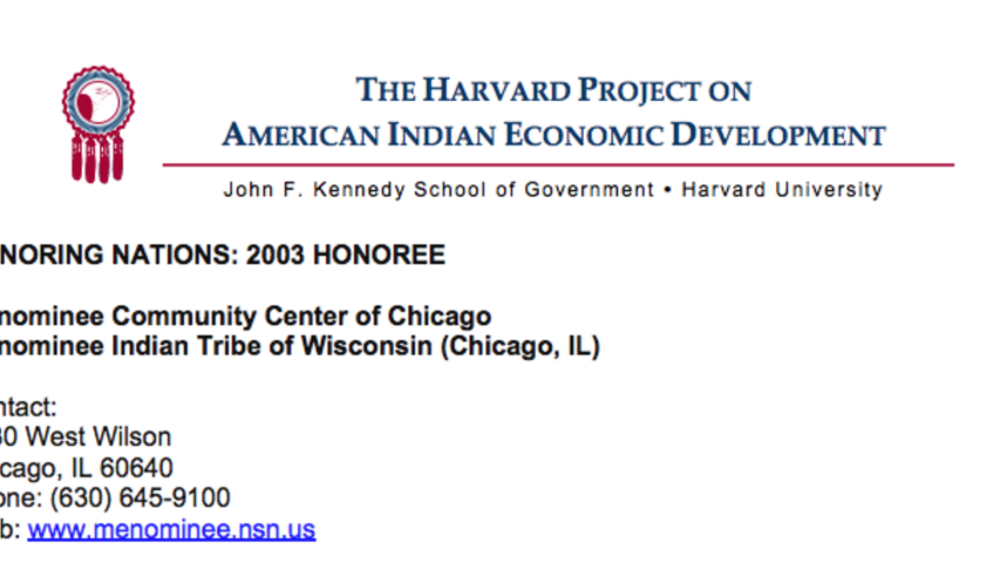
Menominee Community Center of Chicago
A unique partnership between an urban Indian center and a tribal government, the tribally funded Community Center serves nearly 500 Menominee tribal citizens living in the greater Chicago area. The Center and the tribal government work together to ensure that all of its citizens are actively…
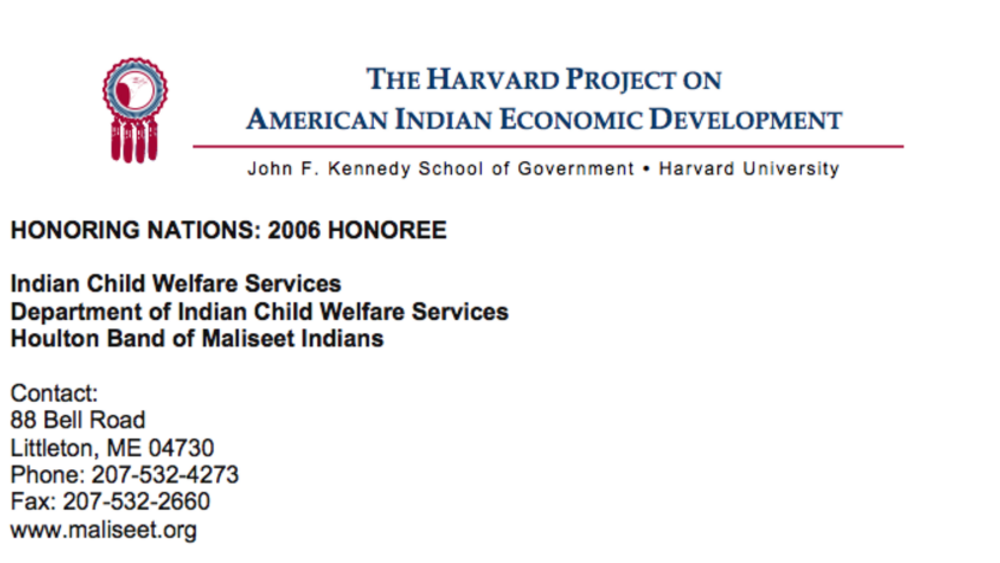
Houlton Band Indian Child Welfare Services
Seeking to establish collaborative working relationships with the state while firmly asserting sovereignty over Maliseet children, a Child Welfare Department was formed by the Houlton Band. The department created a Child Protective Team made up of professionals and volunteers to review and seek…
Pagination
- First page
- …
- 27
- 28
- 29
- …
- Last page
